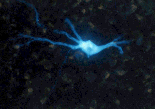

|
||||
| Sponsored by Wake Forest University School of Medicine and National Families in Action | ||||
|
Future Workshops
The Addiction Studies The Addiction Studies Program for Journalists conducts workshops to explore the latest scientific research about addiction to cocaine, alcohol, nicotine, and other drugs. Workshops are held for reporters who cover all beats – science, medicine, and health, as well as crime and courts, sports, entertainment, education, and business. Future workshops include: 2005 Monday,
January 10 - Tuesday, January 11 Addiction Studies Workshop
for Journalists
Friday, June 17 – Saturday, June 18 Monday,
December 12-Tuesday, December 13 Addiction Studies Workshop
for Journalists 2006 Friday,
June 16 – Saturday, June 17 2007
Friday, June 15 – Saturday, June 16 2008 Friday,
June 13 – Saturday, June 14 2009 Friday,
June 19 – Saturday, June 20 ________ * These workshops are held before the annual meetings of the College on Problems of Drug Dependence (CPDD), which, founded in 1929, is the longest standing group in the United States addressing problems of drug dependence and abuse. Following the workshop, participating journalists are invited to attend the first two days of the CPDD meeting. Scholarship support is available for the both the Addiction Studies Workshop and for the CPDD meeting. **This workshop is held before the annual meeting of the Substance Abuse Policy Research Program (SAPRP). Following the workshop, participating journalists are invited to attend the first day of the SAPRP meeting. Scholarship support is available for the both the Addiction Studies Workshop and for the SAPRP meeting. The Society for Neuroscience is a nonprofit membership organization of scientists and physicians who study the brain and nervous system. Since its inception in 1969, the Society has grown from 500 members to more than 38,000. Today, it is the world's largest organization of scientists and physicians devoted to advancing understanding of the brain and nervous system. Following the workshop, participating journalists are invited to attend the first two days of this meeting. Scholarship support is available for the both the Addiction Studies Workshop and for the neuroscience meeting. About the Program's Founders The Addiction Studies Program for Journalists was established by the Wake Forest University School of Medicine in Winston-Salem, North Carolina and National Families in Action in Atlanta, Georgia. The Society for Neuroscience is a nonprofit membership organization of scientists and physicians who study the brain and nervous system. Since its inception in 1969, the Society has grown from 500 members to more than 38,000. Today, it is the world's largest organization of scientists and physicians devoted to advancing understanding of the brain and nervous system. Following the workshop, participating journalists are invited to attend the first two days of the CPDD meeting. Scholarship support is available for the both the Addiction Studies Workshop and for the CPDD meeting. The program is affiliated with Wake Forest's Center for Neurobiological Investigation of Drug Abuse, one of the longest-running and most-respected NIH-funded drug-abuse research programs in the nation. The medical school is also home to the Center for Neurobiological Study of Alcohol and the Robert Wood Johnson Substance Abuse Policy Research Program. The Addiction Studies Program is funded by the U.S. National Institute on Drug Abuse, a National Institute of Health. National Families in Action is one of the nation's premiere drug-prevention and education organizations. Since its founding in 1977, it has provided scientifically accurate information about drug effects to parents, children, university students, families, communities, and others to help them prevent drug abuse and addiction. The organization founded and is implementing the Parent Corps, which mobilizes parents to prevent substance abuse among children. The Addiction Studies Program is also affiliated with the Medical Journalism Program at the University of North Carolina at Chapel Hill School of Journalism and Mass Communication.
For more information call (336) 713-7161. |
|
What Journalists About the Workshops Every day scientists are making remarkable new discoveries about the ways addictive drugs affect the brain. Every day substance abuse and drug addiction pervade the news. Journalists need the latest scientific knowledge to write their best stories. The Addiction Studies Program for Journalists is designed to give journalists the latest scientific information about addiction. The program conducts workshops not only to transmit this information but also to build relationships between journalists and addiction scientists. The two-day workshops employ an interactive, problem-based format that engages the skills and knowledge of working journalists. Participants will have ample time to interact with program faculty -- internationally known scientists, teachers of journalism, award-winning journalists from the print and broadcast media, and others who have made important contributions to the drug-abuse field. Faculty are drawn from Wake Forest University, Harvard University, Emory University, Columbia University, Duke University, the University of North Carolina at Chapel Hill, and other research institutions. Who Should Attend?
What Will the Workshop Offer?
|
||
| Home | Register | Future Workshops | Past Workshops | Journalists Only | Links | Glossary | About |
Last Revision
info@addictionstudies.org